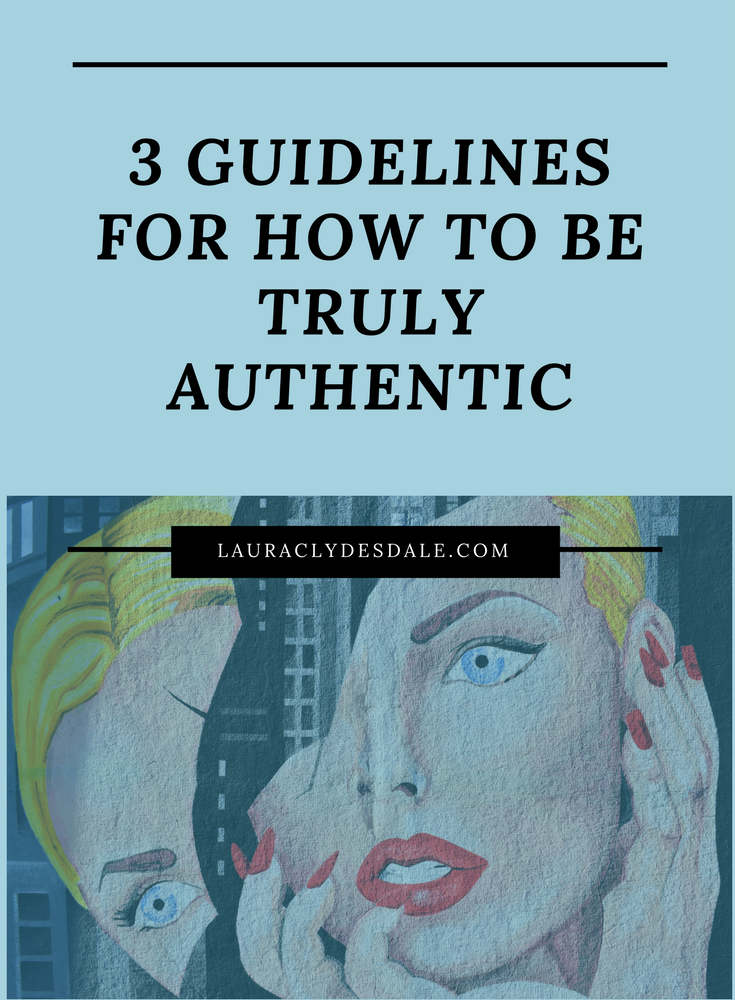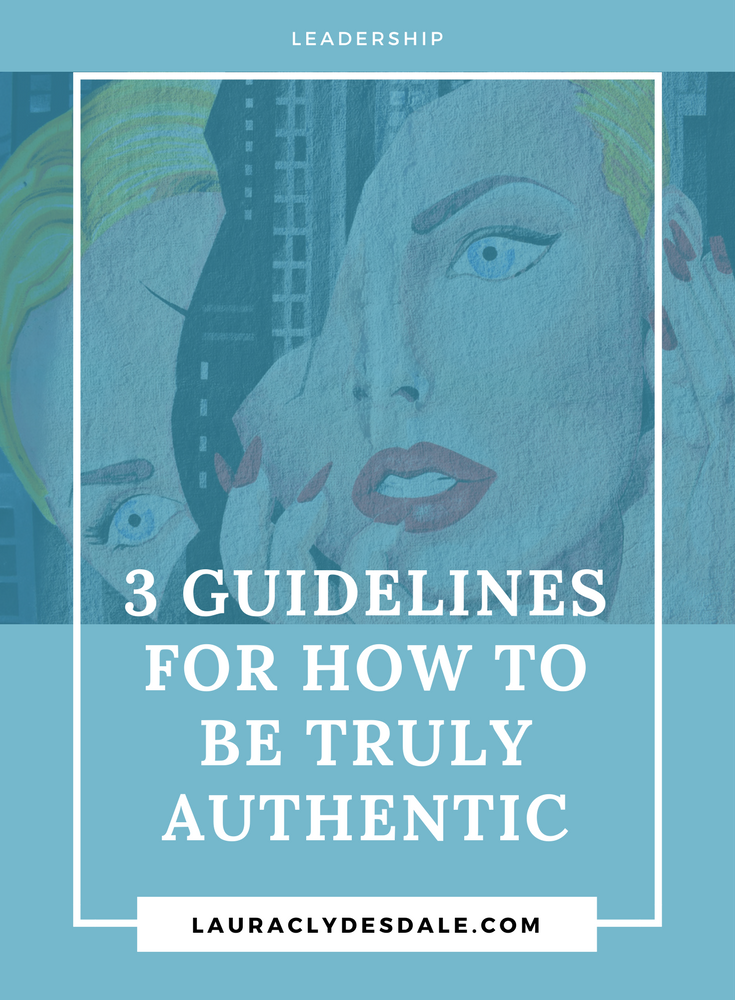“Mom, what does authentic mean?”
“Authentic means you are honest, genuine, and real,” I answer.
She replied, “That’s what people say, but sometimes I feel honesty is just used as an excuse to be mean. When you push back on how what someone said wasn’t very nice, they say, “I’m just being who I am. If you don’t like it, too bad!”
In the world of girls' leadership, the word “authenticity” gets used a lot and for a good reason.
Research by the organization called ROX (Ruling Our Experiences), —proves that girls have difficulty being themselves because they are worried about being judged. "Although girls have the desire to become leaders and most (64%) report they like being in charge, nearly half (46%) continue to hold a perception that speaking their mind or disagreeing with others will keep people from liking them," the study says.
This is definitely not living authentically.
What’s really scary is that girls with the highest G.P.A. are most likely (62% of those with a 4.0 or higher) to report they don’t say what's on their mind or disagree with others because they want to be liked.
The study suggests girls prefer to portray the perfect image of having it all and letting no one see them sweat.
The easiest way to accomplish this false veneer is to keep your head down, keep plowing forward, and above all, never take a risk. Risky behaviors girls avoid (which compromises their authenticity) include: overstepping bounds, appearing bossy, giving a contrary opinion that could anger someone, and worst of all, potentially ruining a friendship.
Therefore, parents and girls leadership experts implore girls to stop playing it safe, and start getting ‘authentic.’
Unfortunately, I see two alarming trends regarding the heavy usage of this word.
First, its meaning can be vague and powerless. Below is an example of an ad trying to target millennial women. I didn’t get it either…
Second, encouraging our daughters to just ‘live authentically’ can backfire.
Wait, what?!
This is the issue my daughter raised. We tell girls to be more authentic, but we don’t give them any guidance on how to be authentic. “Be yourself” is a pretty broad brush stroke.
We need to explain the difference between “confident authenticity” and simply brazen oversharing.
Because, ironically, we run into problems when we are preoccupied with being “authentic.” When authenticity itself is a singular goal, it can cause us to filter less, overshare, and even manifests itself as a chip on a shoulder.
Psychologist Gwendolyn Seidman found people who are singularly focused on being “real” posted far more revealing content on Facebook. In other research, individuals who wished to be seen authentically were more likely to jeopardize their professional relationships through their social media posts. Another study found employees who did less self-monitoring, received significantly lower performance evaluations and were less likely to get promoted to leadership positions.
When we take things to an extreme, we aren’t talking about authenticity anymore.
As the author of Give and Take, Adam Grant says, “Too little generosity is selfishness; too much generosity becomes self-sacrifice. Too little pride makes us meek; too much leaves us narcissistic. Too little courage makes us cowardly; too much makes us reckless.”
Brene’ Brown, author of Daring Greatly, doesn’t want us to stop trying to be authentic. On the contrary! She believes no one can be “too authentic”… when approached the right way.
In her research, she found the heart of authenticity is the courage to be imperfect, vulnerable, and to set boundaries.
She says, “I believe authenticity has parameters and once you're outside of them, you're not talking about authenticity any longer.” Brown goes on, “Real authenticity actually requires major self-monitoring. In fact, setting boundaries is, by definition, self-monitoring—it’s thinking about what you’re sharing, why you’re sharing it, and with whom you should be sharing it.”
Vulnerability is NOT the same as oversharing. Oversharing, and disregarding others’ feelings is NOT authenticity.
So what to do about our girls?
It’s critical they share their opinions, stand up for themselves, and be confident.
It’s evident from the ROX study; girls are going in the opposite direction and trying to live up to an impossible ideal. I’m not sure if their 4.0+ GPAs are a symptom or a cause. But either way, they are so worried about being judged, they’re not willing to be vulnerable, messy and real.
But how to be vulnerable and real? How to know when to do it?
If we take Brene' Brown’s advice and concentrate on her what-why-and-with-whom approach, we get more clarity on how to strike the right balance. Keep in mind that when I say “sharing,” I’m not just talking about social media. Sharing relates to all communication whether in person or electronically.
1. Why are you sharing?
Too much ‘in your face’ is just ego. Too many 'oversharing' posts on social media just looks like a cry for people to comment on your picture. If you are sharing your thoughts and feelings to help you feel powerful, in control, smart, or more loved you are missing the authenticity mark.
The aim in sharing difficult or vulnerable information should be to help someone or to help others see you more clearly when misunderstood. For instance, if your friend is overweight, and you feel compelled to address it, do you share you think your friend is eating too much or do you share you are worried about her health? These are two very different why's. One message is judgmental; the other comes from a place of concern.
2. When should you share this?
Put yourself in their shoes. Would you want to be told and, if so, how and when? Can the person change? If not, it’s just cruel to share your thoughts. Like telling your friend her hair is too curly, and that’s why people pick on her. If you wait for your friend to say, “I’m so frustrated with my curly hair,” that’s the time you might say, “if it really bothers you I can help you straighten it for a day to see if you like it.”
We need to do a better job of monitoring our actions and statements. Otherwise, we risk looking severe and callous rather than accepting and loving of ourselves and others.
3. What and how are you sharing?
Your values should trump your “honesty.” If you value your relationship, it should influence the words you choose, and it should be done with empathy and caring. Aim for sincerity. Sincerity at the right time is powerful.
If we respect the person we are trying to influence, it should guide how we express our authenticity. Not only will this save hurt feelings, but it will also help the person hear you. You shouldn’t agree with everyone because you value being ‘nice’ and 'liked,' but you shouldn’t swing all the way to the others side and try to eliminate diverse perspectives either. You can and should stand up for yourself, but you should also be aware that if someone’s behavior is out of left field, it might be driven by something you don’t understand—like parents going through a divorce or illness.
Leadership involves inspiring and motivating. No one will be inspired and motivated by someone who wields hurtful and damaging comments that don’t seem to respect or value the people around them.
Although girls enjoy and desire being in charge, the traits often associated with effective leadership can be challenging for them.
The problem cited in the ROX study is confidence. Less confident girls are twice as likely to report they withhold expressing opinions or disagreement compared to girls who describe themselves as confident.
We must encourage girls to speak their mind, believe they are smart, and want to be a leader, but don’t forget to guide them on how.
There is a sincere and vulnerable sweet spot.







